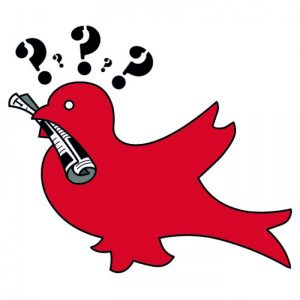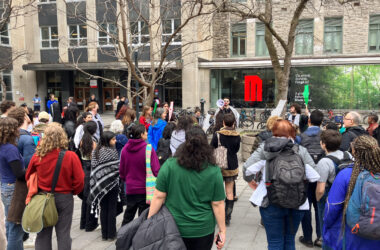Sometimes, while lamenting their tuition fees on Minerva, students learn that they also need to pay fees to the Students’ Society of McGill University (SSMU). Each undergraduate student pays a base membership fee, which varies according to their program and credit load, in addition to fees for the Society’s services, funding committee, insurance plans, and other miscellaneous benefits. SSMU’s General Manager Ryan Hughes, Comptroller Desmond Rodrigues, and the previous vice-president (VP) Finance Esteban Herpin drafted the 2018-2019 budget, which features a significant revenue decrease due to the University Building closure.
Where does SSMU’s revenue come from?
SSMU’s main source of revenue is the base membership fee paid by all undergraduate downtown campus students. The fees charged are scaled by inflation, and the overall base fee revenue depends on enrollment in the university. Due to an increase in total enrollment in Fall 2018, the projected revenue from base fees is $1,711,000 for the 2018-2019 academic year, a $33,000 increase from 2017-2018. Undergraduate students in the faculties of Law, Dentistry, and Medicine pay a base membership fee of $32.49 per term if they are enrolled for nine or more credits and $15.37 per term for fewer than nine credits. Students in all other programs pay $43.93 per term and $21.11 per term, respectively.
SSMU also usually generates revenue from Gert’s Campus Bar and space rentals for events in the University Building. However, with the SSMU building closure extending beyond the original Winter 2019 deadline, these sources of funding are currently unavailable.
How are funds allocated?
The majority of the base fee pays for administrative costs, which can be divided into three categories: General administration, information technology (IT), and executive administration departments. General administration expenses mostly go toward permanent staff salaries, while executive administration costs are mostly allocated to executive salaries. IT costs are mostly subscriptions for software such as Microsoft Office, Adobe Illustrator, and MailChimp.
For the 2018-19 year, SSMU allocated funds toward rental fees for student clubs and services previously housed in the University Building. TV McGill, Muslim Students Association, The McGill Tribune, The Daily Publication Society, and several other students clubs, groups, and services were moved into 2075 Robert Bourassa in March 2018. Starting in late January, SSMU will relocate most of them to 688 Sherbrooke, a building acquired by McGill in fall 2017, in order to save over $80,000. All other services and student clubs are now housed in 3471 Peel Street, a former MORE house. SSMU budgeted $26,000 for utilities and general maintenance for 3471 Peel Street and $275,000 for renting 2075 Robert Bourassa. Outside of club relocation, SSMU acquired 3501 Peel Street to provide SSMU resources; SSMU will pay for the building’s mortgage principal, taxes, and interest over 20 years through its Capital Expenditures Reserve Fund (CERF). SSMU withdraws money from CERF to fund maintenance, purchase capital assets, and cover other unanticipated financial losses.
SSMU events such as Faculty Olympics, Frosh, Activities Night, and Awards Banquet usually break even but may incur costs, which are then funded by the base fee. SSMU also receives sponsorships, usually from local restaurants and external companies, to bring in $25,000 in revenue to cover deficits in other programs.
What do the other SSMU student fees do?
SSMU services, funding committee, insurance plans, and other miscellaneous fees expire after a given period and must be renewed through referenda.
SSMU services, which include Midnight Kitchen and the Black Students’ Network, are student-run groups that provide all undergraduate students with resources and support. The annual budget for each service is drafted by its members and must be approved by SSMU Council.
The funding committee levies fees to provide student groups with financial support. As few groups apply for grants such as the Environment Fund and the First-Year Fund, there is often a surplus that rolls over to the next year. The funding committee also absorbs salaries for casual staff, such as club auditors and mental health commissioners.
L’Alliance pour la santé étudiante au Québec (ASEQ) is a health insurance agency that provides Quebec and out-of-province students with health-care services which the provincial healthcare plan does not cover. McGill’s International Student Services, rather than SSMU, administers the Blue Cross International Student Health Plan for international students.









